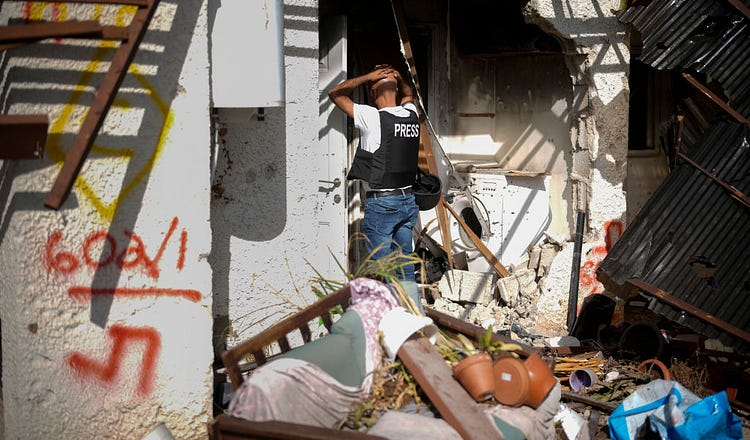‘Antisemitism Is Again Becoming a Terrible Scourge’

“Journalists worldwide have watched and reported on a 45-minute film of Hamas’s invasion that shows burned babies, bloodied corpses, and indiscriminate death.” (Photo by Christopher Furlong/Getty Images)
Ahead of International Holocaust Remembrance Day, Yad Vashem chairman Dani Dayan talks to The Free Press about the importance of bearing witness.
17
This Saturday is International Holocaust Remembrance Day, marking the date Auschwitz-Birkenau was liberated after WWII. And it comes at a time when we are seeing a new kind of Holocaust denial: 32 percent of my peers deny that Hamas’s attack against Israel on October 7 even happened.
This despite the fact the terrorist group filmed its own murder spree. …
Continue Reading The Free Press
To support our journalism, and unlock all of our investigative stories and provocative commentary about the world as it actually is, subscribe below.
$8.33/month
Billed as $100 yearly
$10/month
Billed as $10 monthly
Already have an account?
Sign In

